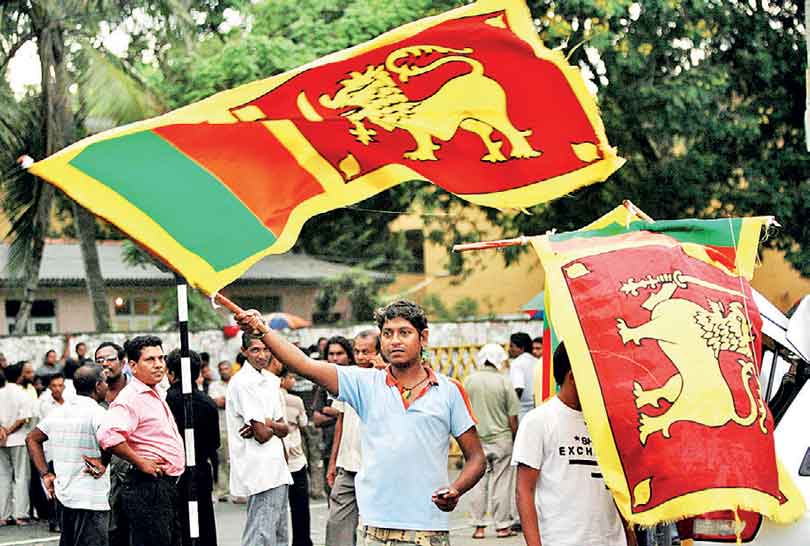Monday Feb 23, 2026
Monday Feb 23, 2026
Friday, 20 October 2023 00:04 - - {{hitsCtrl.values.hits}}

 At the crux of the crisis is accountability. For instance, do international agencies keep account and audit the outcomes of funds disbursed through partner institutions? Is there adequate reporting to governments and other funding partners on the transformation or the lack of it delivered on the ground? What is the real reach and empowerment delivered to communities and industries?
At the crux of the crisis is accountability. For instance, do international agencies keep account and audit the outcomes of funds disbursed through partner institutions? Is there adequate reporting to governments and other funding partners on the transformation or the lack of it delivered on the ground? What is the real reach and empowerment delivered to communities and industries?
 The European Union among others offers funding to dozens of agencies to empower and uplift rights and livelihoods of women. Most of these funds are spent on lavish lifestyles and entertainment of partner agencies, while the real impact and assistance touching the lives and hands of women is barely marginal
The European Union among others offers funding to dozens of agencies to empower and uplift rights and livelihoods of women. Most of these funds are spent on lavish lifestyles and entertainment of partner agencies, while the real impact and assistance touching the lives and hands of women is barely marginal
By Oshadee De Silva
International agencies and foreign-funded local Non-Governmental Organisations (NGO) have a lot to say and do in Sri Lanka’s administrative and operating structures, with a mandate to ensure rights and globally acceptable standards. But who is belling the cat?
The global landscape for NGOs has taken a torrid twist in recent years. When the United Nations, the world’s largest independent non-governmental agency was formed way back in 1945, the august body envisaged fostering international peace, cooperation and harmony. However, 75 years later, this noble quest is perverted by the thirst for power, geo-politics and money. The impacts on civil groups and governments can be telling as they are reduced to mere pawns in the hands of power brokers. This is not a disease limited to the UN; it is an epidemic that has infected NGOs at all levels.
Political hypocrisy and profiteering
Sri Lanka is a happy hunting ground for vested NGOs and public interest groups looking for easy kills, money. The problem is two-fold in the form of political hypocrisy and profiteering. Both come at the expense of an unsuspecting public and industry, ultimately impacting the progress of nations. As alluded to above, the problem is not one limited to the United Nations, the European Commission and other world bodies that claim to stand for governance and accountability, it extends to the plethora of agencies that have cropped up at global and local level claiming to stand for governance and rights.
At the crux of the crisis is accountability. For instance, do international agencies keep account and audit the outcomes of funds disbursed through partner institutions? Is there adequate reporting to governments and other funding partners on the transformation or the lack of it delivered on the ground? What is the real reach and empowerment delivered to communities and industries?
In Sri Lanka’s north and east, Uva and north central regions, the UN and other agencies have funded local partners to establish children’s educational and recreation centres. These facilities are sparsely occupied and hardly maintained. Yet, pictures from launch events often adorn presentations to various stakeholders claiming continuous enrichment of less-privileged lives. The European Union among others offers funding to dozens of agencies to empower and uplift rights and livelihoods of women. Most of these funds are spent on lavish lifestyles and entertainment of partner agencies, while the real impact and assistance touching the lives and hands of women is barely marginal.
Implications to industry and economy
The lies and hypocrisy are not limited to projects targeting individuals and communities but have broader implications to industry and the economy. For instance, the European Union and other regional agencies support their local partners to drive workers’ rights and accountability. As a result, many local NGOs have taken up arms against the draft Labour Act, which ironically consists of terms insisted upon by western governments and partners. What then is their real cause?
On the other hand, western agencies keep lauding Sri Lankan industries for championing sustainability and worker rights, and many global brands list ‘sourced from Sri Lanka’ on the products to their consumers to cross the bridge on ethics and accountability. There is considerable pressure exerted on Sri Lankan industries to achieve and uphold these standards that cover production and workers. Global NGOs fund local partners to exert these pressures, and there is ample corruption taking place there.
These same global agencies and brands however, turn a blind eye on the blatant human rights violations and lack of standards in other destinations such as, Nepal, Bangladesh, Uganda and Thailand, and continue to source from them on a larger scale. Where is accountability then? Where is the purported equality, rights and governance from these august institutions? What is the economic impact of such hypocrisy and duplicity on the nation?
World must act to prevent deterioration, corruption
This is not a problem limited to Sri Lanka, the scourge is prevalent across numerous destinations in Africa, Asia, the South Pacific and the Latin Americas. It is time for governments, industries and civil groups to take note of these actions and devise mechanisms to demand accountability and hold global and local agencies to account on their actions and spending. In turn, governments and philanthropies that fund and support NGOs must demand better accountability from partners and conduct annual ground audits to ensure that their funds are put to good use. NGOs have become a hotbed for employment and unscrupulous gains, under the guise of ‘good’. The world must act to prevent further deterioration, corruption and interference.